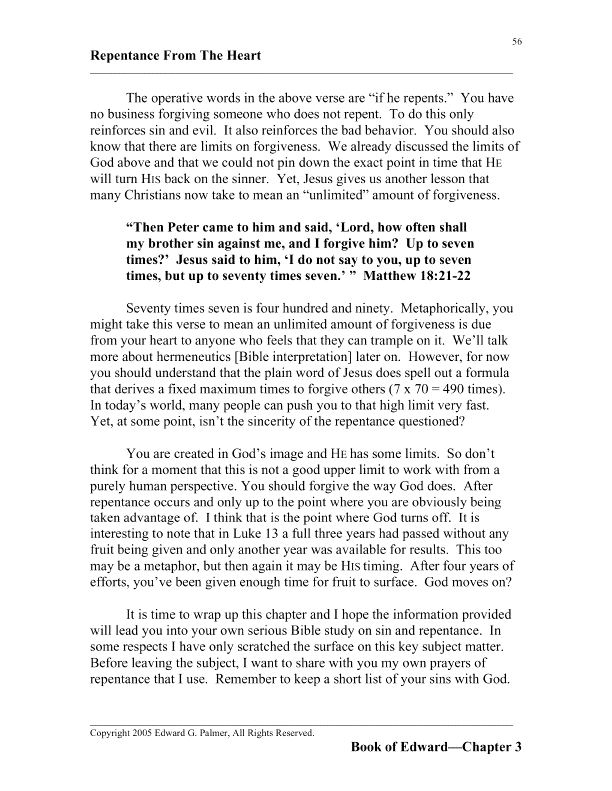

 1
2
3
4
5
6
7
8
9
10
11
12
13
14
15
16
17
18
19
20
21
22
23
24
25
26
27
28
29
30
31
1
2
3
4
5
6
7
8
9
10
11
12
13
14
15
16
17
18
19
20
21
22
23
24
25
26
27
28
29
30
31



“Then Peter came to him and said, ‘Lord, how often shall my brother sin against me, and I forgive him? Up to seven times?’ Jesus said to him, ‘I do not say to you, up to seven times, but up to seventy times seven.’ ” Matthew 18:21-22
Seventy times seven is four hundred and ninety. Metaphorically, you might take this verse to mean an unlimited amount of forgiveness is due from your heart to anyone who feels that they can trample on it. We’ll talk more about hermeneutics [Bible interpretation] later on. However, for now you should understand that the plain word of Jesus does spell out a formula that derives a fixed maximum times to forgive others (7 x 70 = 490 times). In today’s world, many people can push you to that high limit very fast. Yet, at some point, isn’t the sincerity of the repentance questioned?
You are created in God’s image and HE has some limits. So don’t think for a moment that this is not a good upper limit to work with from a purely human perspective. You should forgive the way God does. After repentance occurs and only up to the point where you are obviously being taken advantage of. I think that is the point where God turns off. It is interesting to note that in Luke 13 a full three years had passed without any fruit being given and only another year was available for results. This too may be a metaphor, but then again it may be HIS timing. After four years of efforts, you’ve been given enough time for fruit to surface. God moves on?
It is time to wrap up this chapter and I hope the information provided will lead you into your own serious Bible study on sin and repentance. In some respects I have only scratched the surface on this key subject matter. Before leaving the subject, I want to share with you my own prayers of repentance that I use. Remember to keep a short list of your sins with God.